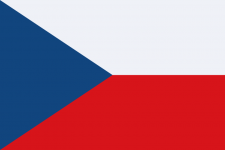
The arrival of thousands of children from Ukraine in Czech schools, since the outbreak of the ongoing invasion of Ukraine by Russia, is posing unprecedented challenges for the education system. Several recent studies provide nuanced insights into how these students are adapting to the Czech education system, the obstacles schools face in supporting their integration, and which factors influence decisions about their educational trajectories.
A thematic report by the Czech School Inspectorate, based on a quantitative analysis of inspection data from September 2022 to March 2023, identified language barriers as the primary obstacle to integration, with two-thirds of schools citing them as the biggest challenge. Czech as a second language is taught in most primary and secondary schools, but only in 25% of preschools. Moreover, instruction was found to be often limited to just 1–2 hours per week outside the regular curriculum. The report also highlights shortcomings in methodological support for schools, with 20% of primary schools having no teacher designated to overseeing adaptation. It was found that Ukrainian students are often placed in separate classroom groups focused solely on learning Czech, while integration into regular classrooms is neglected. Finally, although 60% of schools reported psychosocial issues among Ukrainian students (an estimated 12.5% of whom were simultaneously studying online in Ukraine), absenteeism within this group was not found to be significantly higher than among Czech students.
A qualitative study by the SYRI research centre, conducted in 6 primary schools between October 2022 and February 2023, found that schools prioritise social adaptation - ensuring students' well-being and integration into peer groups - over academic adaptation. This approach has proved problematic, as Ukrainian parents and students reported that they expected stronger focus on education, which they saw as crucial. Students also said they perceive Czech schools as less academically demanding than those in Ukraine. Despite efforts to support social adaptation, classroom relationships were found to have remained ethnically segregated: the study reports that Ukrainian students often form their own, separate groups and have minimal interaction with their Czech peers. Teachers were also found to be uncertain about what academic expectations to set for Ukrainian students, making academic integration more difficult.
A qualitative study on the educational trajectories of Ukrainian students, conducted in 2024, examines the factors that influence these students' decisions when transitioning from primary to secondary education. This transition is a crucial moment, when students must adapt to school rules and expectations which are often centred around academic performance. The study found that students and their families struggle to balance school obligations, daily life, and future planning while grappling with uncertainty about whether to stay in the Czech Republic or return to Ukraine. This creates pressure, sometimes leading students to prioritise other aspects of life - such as adolescence or employment - over their education, insodoing complicating their integration and future achievements. The study shows that while school plays an important role, they represent only one of many factors shaping Ukrainian students' adaptation and educational paths. Moreover, it was found that concerns about failing Czech secondary school entrance exams lead many students to continue online schooling in Ukraine, aiming to obtain a Ukrainian diploma and then have it recognised in the Czech Republic, in a different route to pursuing Czech higher education.
Details
- Publication dates
- Location
- country wide
- Geographic area
- Czech Republic
- Source
- Posted by
